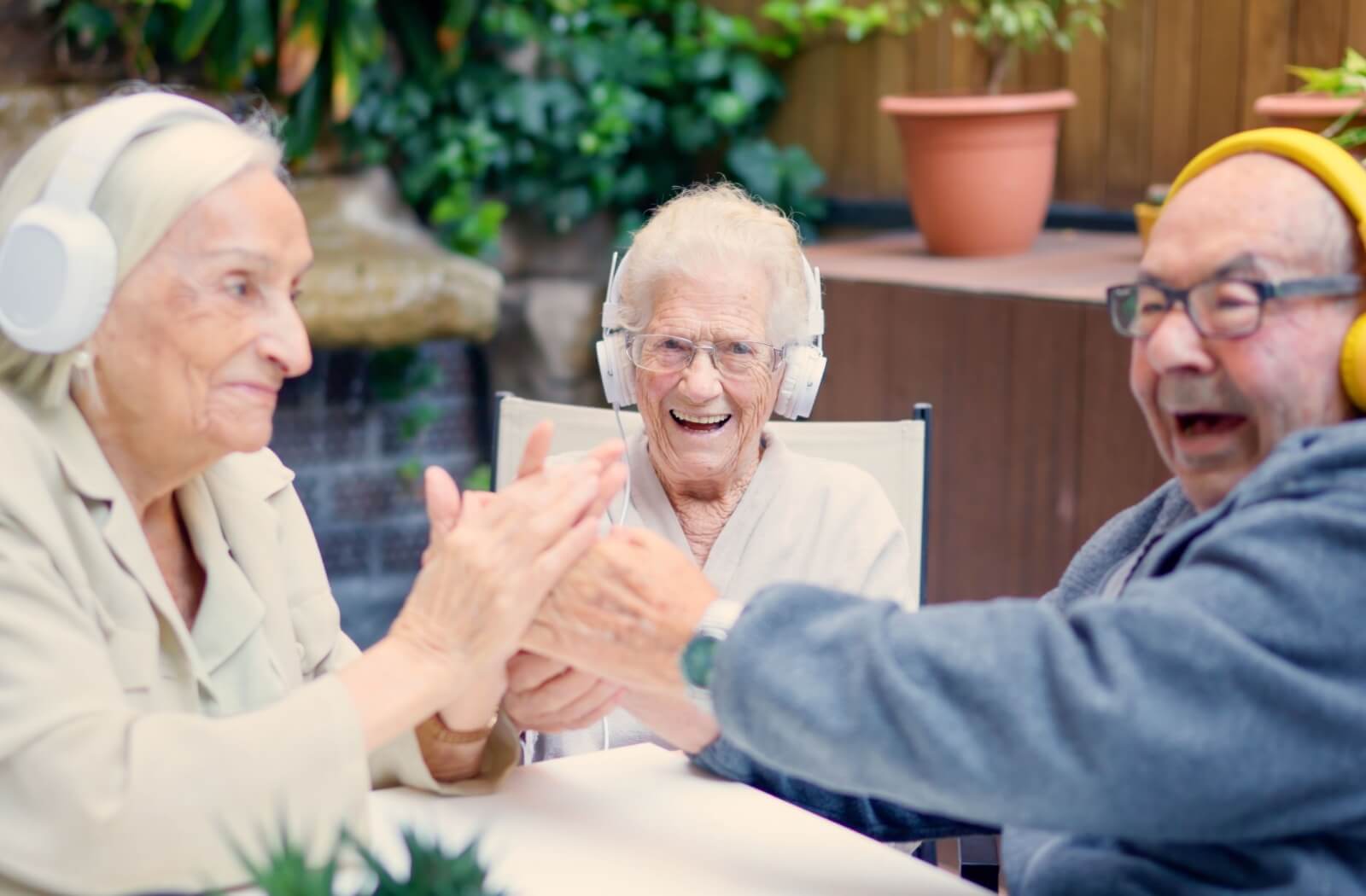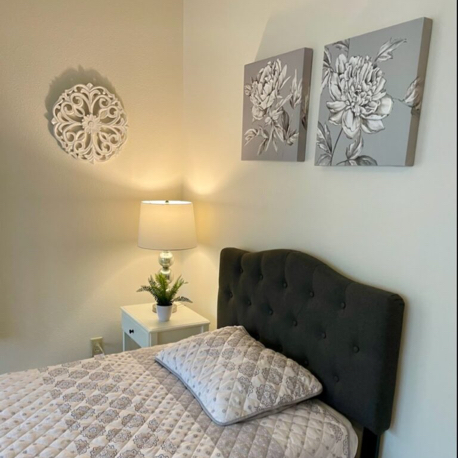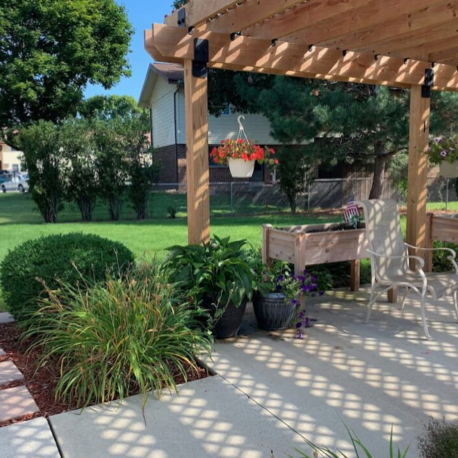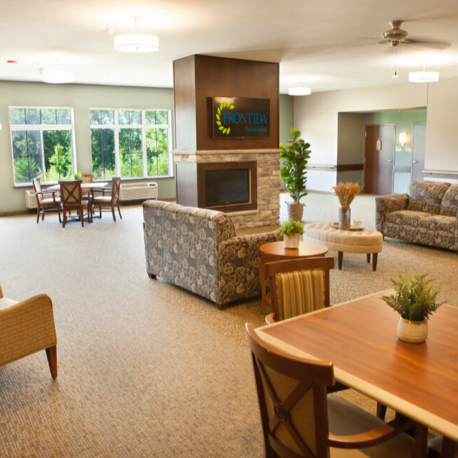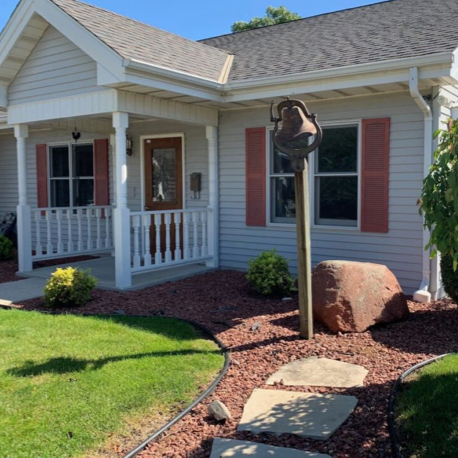Caring for a loved one with memory-related challenges can be both a significant and challenging responsibility. Conditions like Alzheimer’s or other forms of dementia often require specialized care that may go beyond what family members can provide at home. This is where memory care communities can offer support: personalized care plans, assistance with daily living activities, 24-hour monitoring, secure environments, and activities specially designed to stimulate cognitive function.
What Is Memory Care?
Memory care is a specialized form of senior living tailored to those diagnosed with Alzheimer’s disease, dementia, or other memory impairments. Unlike traditional assisted living, memory care prioritizes personalized environments, structured activities, and trained staff to enhance residents’ quality of life while safeguarding their health and safety.
Memory care combines medical, emotional, and social support to create a holistic care environment. The goal isn’t just safety—it’s helping residents thrive in the face of memory challenges.
Now, let’s explore the specific services memory care communities provide.
Personalized Care Plans
Every person experiences memory loss differently, and cookie-cutter care isn’t enough. Memory care communities focus on creating personalized care plans catered to each resident’s unique challenges, preferences, and routines. Whether respecting a resident’s favorite morning ritual or understanding their likes and dislikes, personalization makes sure care feels natural and dignified.
Medication Management
Seniors with Alzheimer’s or dementia often require multiple medications daily. Memory care communities specialize in medication management, ensuring all prescriptions are administered correctly and on time. Staff also monitor for any side effects or medication interactions, preventing unnecessary complications.
This support takes the burden off family members while safeguarding the resident’s health.
Specialized Cognitive Therapies
One key benefit of memory care is access to specialized therapies designed to stimulate cognitive function and slow progression. Examples include:
- Reminiscence Therapy: Using photos, music, or objects to spark memories and encourage meaningful storytelling.
- Art & Music Therapy: Activities focused on creativity and enjoyment have been shown to reduce agitation and improve mood.
- Brain Exercises: Simple puzzles, memory games, or group challenges designed to engage the brain in a fun and safe way.
These therapies aim to enhance residents’ mental engagement and overall quality of life.
Regular Assessments & Adjustments to Care
Cognitive conditions can progress over time. Memory care staff conduct regular assessments to monitor each resident’s health and well-being. Plans are often adjusted depending on mobility, behavior, or changes in dietary needs. This proactive approach minimizes the risk of unmet needs or health complications.
Assistance with Daily Activities
Daily tasks like dressing, bathing, and eating can become overwhelming for seniors with cognitive challenges. Memory care staff are trained to assist with daily activities while maintaining the resident’s dignity and independence. Residents are encouraged to participate where they can, striking a balance between support and autonomy.
24/7 Supervision & Support
Memory impairments can increase vulnerability to confusion or hazards, especially during odd hours. Memory care offers 24/7 supervision, making sure help is always available—for a midnight bathroom visit or calming nighttime agitation. Trained caregivers are always nearby, ready to assist with compassion.
Nutritious Meals & Dining Assistance
Proper nutrition is crucial for physical and cognitive health, yet memory impairments often lead to poor eating habits. Memory care communities prioritize nutritious meal plans tailored to individual dietary needs, from soft diets to diabetes-friendly options.
Dining assistance is provided for residents who struggle during meals. This may include verbal prompts, physical guidance with utensils, or even full feeding support when needed, all while fostering a calm and comfortable mealtime experience.
Safe & Secure Environment
Memory care communities are designed to provide a safe, secure environment that reduces confusion and anxiety. Some of the key features include:
- Circular floor plans to prevent residents from feeling trapped or disoriented.
- Secure outdoor areas for safe walking and access to fresh air.
- Color-coded cues or visual markers to help residents find their way around.
These features create a sense of freedom while providing safety. Familiar layouts, personalized rooms, and thoughtful lighting also help residents feel at ease.
Social & Recreational Activities
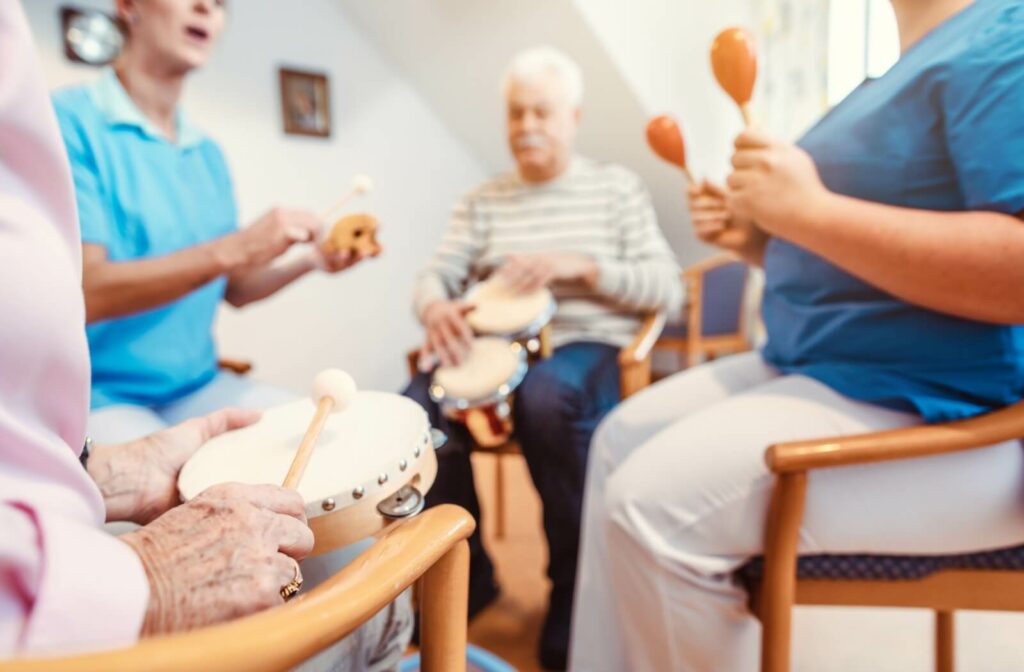
Loneliness and isolation can exacerbate cognitive decline. Memory care communities prioritize social and recreational activities designed for engagement and enjoyment. These may include:
- Group games like trivia or bingo, tailored for cognitive participation.
- Gentle physical activities like chair yoga or guided stretching.
- Movie nights, live music performances, or even pet therapy sessions.
Such activities aren’t just about entertainment—they help foster social connections and a sense of community among residents.
Transportation & Outings
Staying connected to the outside world is beneficial for emotional well-being. Many memory care communities offer transportation and supervised outings to allow residents to attend doctor’s appointments, visit favorite local spots, or enjoy group trips to parks or museums. These outings are carefully planned for safety and accessibility.
Why Memory Care May Be the Right Choice for Your Loved One
Whether preventing missed medications or enhancing a loved one’s sense of purpose, memory care provides services that bridge the gap between clinical care and emotional well-being. Memory care communities empower individuals with cognitive challenges by focusing on health, safety, and social connection.
Frontida Assisted Living recommends tours of memory care communities to answer all your questions about memory care. Contact us today to learn about our community and if we can be a good fit for your loved one.

